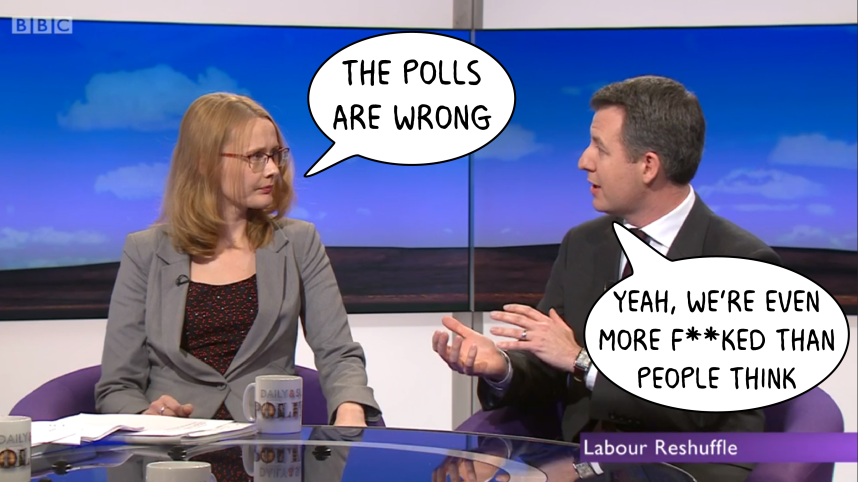Why I’m a reluctant left-wing Brexiteer
To be lumped-in with the Faragian “Little Englander” stereotype of those who are extremely sceptical about the European Union (and who, admittedly, probably comprise the vast majority of such sceptics) is an extremely uncomfortable position for a socialist to find himself in. The belief that all humans are inherently equal and that accidents of birth should not predestine someone make us fundamentally hostile to nationalist notions of exceptionalism (whether explicit or implicit). We comfort ourselves with the fact that ours was once the prevailing opinion within the political left, championed by heroes like Tony Benn, Michael Foot, and my own particular favourite, Peter Shore (pictured above).
In the coming weeks, I intend to provide a left-wing critique of the European Union. Subsequent blogs will consider the role of the European Court of Justice, in particular, in entrenching a neoliberal ideology into the legal orders of EU Members States; the one-way street of privatisation and marketisation that is driven by the EU; and the EU’s ideological choice to impose harsh austerity measures in response to the Eurozone crisis. All of these, I believe, demonstrate that the EU forces Member States to adhere to conservative ideology.
I have never been a rampant Europhile (as a student, I regarded the Young European Federalists with considerable disdain), and have always looked upon the European Union with a critical eye, believing that significant reform was necessary, but possible. Two parallel processes have led me to conclude that such reform is not possible. The first, is that in becoming more expert in European Union law, as a student and then a lecturer and writer, I have come to conclude that only the wholesale revision of the core principles of the Union could transform the EU from a neoliberal, free-market union to a social union. Second, recent events in Europe have convinced me that no will exists within EU institutions to make such a change and, indeed, the institutional support for neoliberal free-market capitalism has become more trenchant, and more harsh. Both of these I intend to deal with more comprehensively in the coming weeks.
In essence, there are two orders of complaint about the path that the European Union has taken.
The first order complaint is fairly ideologically neutral: that the European Union deprives the citizens of Member States of any direct say over matters that would usually be the subject of political discourse and division. Invariably, the main proponents of this argument appear to be drawn from the right. Complaints about the surrender of sovereignty can frequently be heard from the Conservative benches of the House of Commons, but seldom heard from the Labour benches.
The second order complaint is distinctly partisan, and from a left-wing perspective more worrisome: that having been deprived of any direct say over matters that would usually be the subject of political discourse and division, we have had imposed upon us a free-market ideology from which we are not at liberty to depart.
Though the preference for free-market ideology has been evident, in particular in judgements of the ECJ, since the early days of the EEC, the abandonment of the façade of ideological neutrality came during the 1980s. During this period we saw the entrenchment of a consensus that arose in the 1980s, when almost every Minister in the Council was drawn from the centre right. This consensus led to both the Single European Act and the Treaty of Maastricht. Unlike in domestic politics, that ideological choice cannot be undone by a majority, even a relatively sizable one. A similar uniformity of ideology as was evident in the 1980s would be necessary before a reversal of this ideological choice became possible, let alone likely. Such uniformity becomes less and less likely as more and more states are represented at the Council.
It is surprising, therefore, that so many on the Conservative benches are so antagonistic towards the European Union, relative to those on the Labour benches. If Conservatives don’t like that their political autonomy over the ideological direction of the country has been stripped away, they can at least console themselves with the fact that the levers of power of which they have been deprived are nonetheless being pulled in a manner that is, for the most part, to their pleasing. For example, John Major’s government actually quite liked the EU’s deficit-limitation rules because they represented the entrenchment of “good conservative values”. Arguably, John Major is the most successful Conservative Prime Minister in British history because he succeeded in entrenching conservative ideology in the British Constitution in a manner that no other politician in the history of the Kingdom had ever achieved.
By contrast, the more elitist elements of the left are quite at peace with not pulling the levers of power themselves provided that they are being pulled in a manner of their pleasing (the internationalisation of human rights is a good example thereof). But in EU Member States control over the levers of power has been surrendered and that power is being exercised in a decidedly right-wing manner. It is astonishing, therefore, that the Labour Party should be the strident defenders of the European Union, while it is the Conservatives who are amongst its harshest critics. The Labour Party has convinced itself that the European Union can be a vehicle for left-wing ideology when sixty years of evidence has shown that the opposite is, in fact, the case.
So my objection to the EU is not rooted in some intrinsic objection to the internationalisation of exercise of political power. My objection is that the internationalisation of that political power has been to entrench a conservative ideology to which I am fundamentally opposed, and to prohibit the governments of Member States from acting in any manner that departs from that ideology.

 Recourse to patriotism betrays a poverty of ideas. Like the old Yes, Prime Minister scene where Hacker has nothing to say to the party conference so has to resort to “Britain’s place in the world”, “standing up for Britain” waving the flag, etc. It’s no surprise then that as the British left finds itself at its intellectual nadir so many see Labour’s lack of patriotism as the
Recourse to patriotism betrays a poverty of ideas. Like the old Yes, Prime Minister scene where Hacker has nothing to say to the party conference so has to resort to “Britain’s place in the world”, “standing up for Britain” waving the flag, etc. It’s no surprise then that as the British left finds itself at its intellectual nadir so many see Labour’s lack of patriotism as the 
